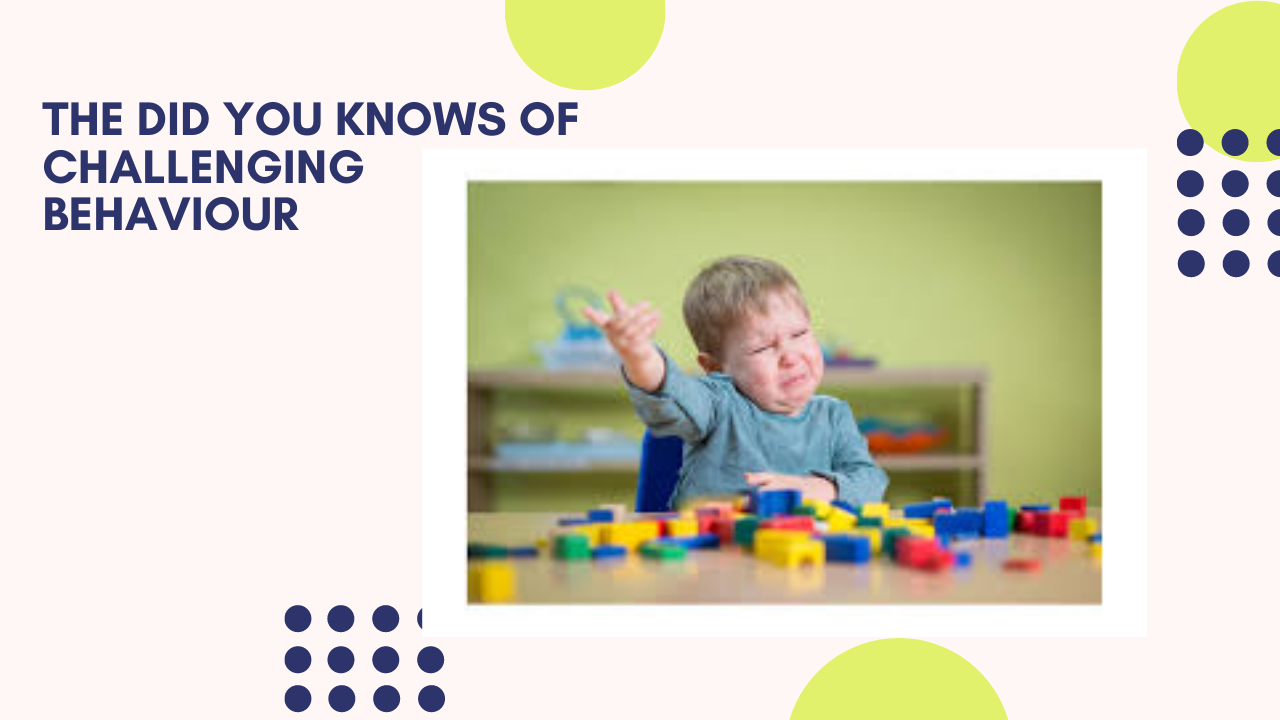
The Did you Knows of Challenging Behaviour
Sep 24, 2020The did you knows of challenging behaviour.

Challenging behaviour can be confusing, sometimes triggers are not obvious, sometimes you don’t know how to manage them correctly and sometimes it is overwhelming for everyone in the home.
Let’s be honest, managing challenging behaviour is tough! It is emotionally draining for the child, for the parents and for anyone else who is involved in the situation.
When the triggers are not obvious it is even more challenging for the parent as many parents from experience feel helpless and often blame themselves. Sometimes you feel like you have done all the strategies possible, yet nothing seems to be helping.
Let me explain a few things:
- There is ALWAYS a reason for a behaviour. This may not be obvious to us but there is always a reason.
- Did you know it can take 90 minutes from when a child ‘appears’ calm to actually when they are physiologically calm. Therefore, if us as adults rush in with discipline, talking, punishment or demands or whatever it is we want to talk to them about, this could quickly escalate the behaviour – because in reality they are NOT calm!
- You will have more of an impact on managing and supporting your child through heightened incidents if you remain emotionally under control and therefore, do not raise your voice or threaten punishment to the child.
All challenging behaviour is a form of communication

This is particularly evident for individuals who have poor expressive communication skills or a limited repertoire of behaviours. They have no other strategy to use apart from behaviour to communicate their needs.
Sometimes they have other strategies but they have learnt that inappropriate ways of communicating their needs/wants can be quicker and more reliable response from other people than appropriate methods.
Why do you not know the cause?

Although there are many reasons why challenging behaviour occurs, there are 4 common overall categories which a behaviour can fall under.
- Sensory – Behaviours can be internally rewarding or self-reinforcing e.g. what is happening around the person is not as important as what is happening inside.
- Tangible – Want something such as food, object or activity. Remember, it’s not bad to want these things as if you are hungry it makes sense to want food, its focusing on positive strategies instead of negative.
- Social Attention – Could be due to limited communication skills, boredom, inability to occupy self – Therefore, behaviour is learnt that if I act this way, I will attract others’ attention, even if it is negative attention.
- Escape – Avoid situations/activities they don’t like or don’t find rewarding.
Function, Function, Function!
To understand and manage it, is important to differentiate and formulate the function of the behaviour in order to target the behaviour correctly. Once we understand or hypothesize the function we can develop strategies to implement.
Also did you know: There are 4 phases someone experiences within a challenging behaviour cycle. It is critical to understand the 4 phases in order to fully support the child in a pro-active way rather than a re-active way. When we are re-active us adults often become dysregulated ourselves!
If you would like further support in understanding your child’s challenging behaviour please visit out website at www.therapeeze.com and join our next Live webinar series called ‘Differentiate and Formulate’ or alternatively we have a lot of online strategies and resources for you to integrate in our membership scheme, so join now!
Thinking of an in-depth clinical assessment and formulation to truly understand your child’s behaviour and receive therapeutic strategies for them? Then book your free consultation with a specialist to discuss further.

